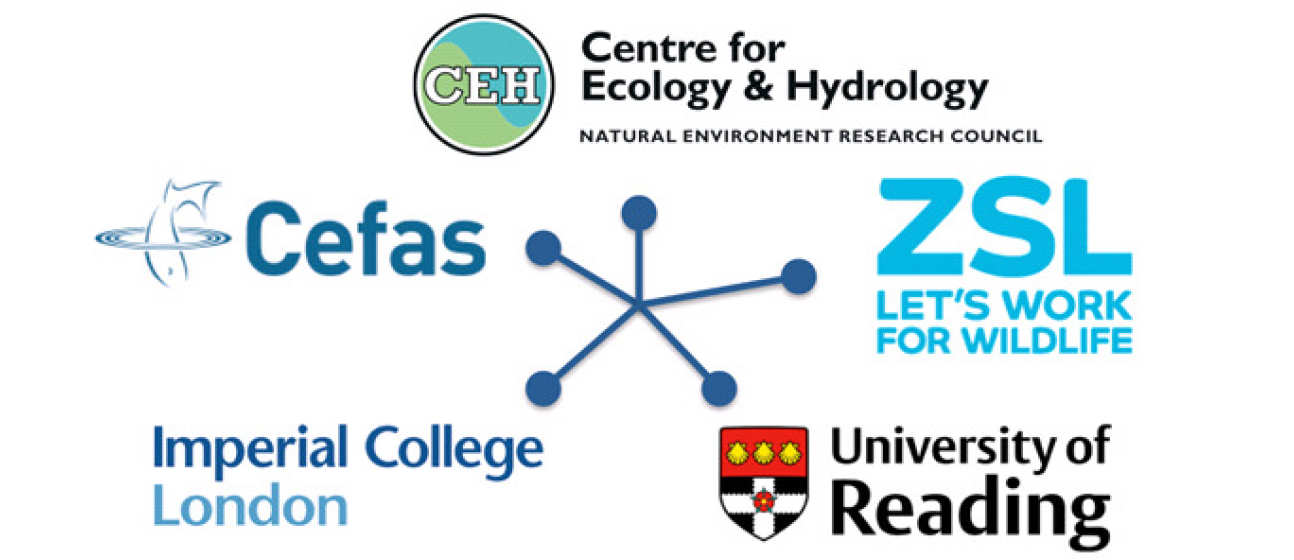 Funded by NERC, QMEE is led by a consortium of 5 research organisations with complementary expertise in quantitative ecology and evolution, working in partnership with government, industry and charities.
Funded by NERC, QMEE is led by a consortium of 5 research organisations with complementary expertise in quantitative ecology and evolution, working in partnership with government, industry and charities.
QMEE will recruit 12 students per year for 3 years starting from 2017. Individual research projects will be supplemented by innovative cohort training solving real-world problems for non-academic stakeholders.
Links: Imperial College London, University of Reading,Cefas, Centre for Ecology & Hydrology, ZSL
Research and training vision
Species and ecosystems are affected by environmental change and human activities, which in turn affect the environment, human health and wellbeing. Managing these impacts requires that we understand natural processes well enough to predict change and design interventions. Ecological and evolutionary theory and computing are key to solving these problems.
The QMEE CDT aims to train the next generation of researchers in Ecology and Evolution with the quantitative and modelling skills needed to address real-world problems by connecting theory, data, and practice. The CDT will train students who
- create cross-cutting theory for complex ecological, evolutionary, environmental and socio-ecological systems
- develop computational methods to assimilate, interpret and evaluate large and complex datasets that guide theory development and test emerging models
- use theory and models to solve applied challenges (such as optimizing sustainable food production or controlling the evolution of resistance)
- make near real-time use of new data streams from multiple sensors to inform management strategies for environmental change.
- conduct research that is useful for and driven by a wide range of stakeholders in government, industry and charities.
By ‘seeding’ a generation of researchers with both the quantitative skills and experiences needed to address real-world problems, The CDT aims to increase both the employability of ecological and evolutionary scientists and the impact and reach of their research.
Contact us
If you would like to know more please contact us at qmee.cdt@imperial.ac.uk